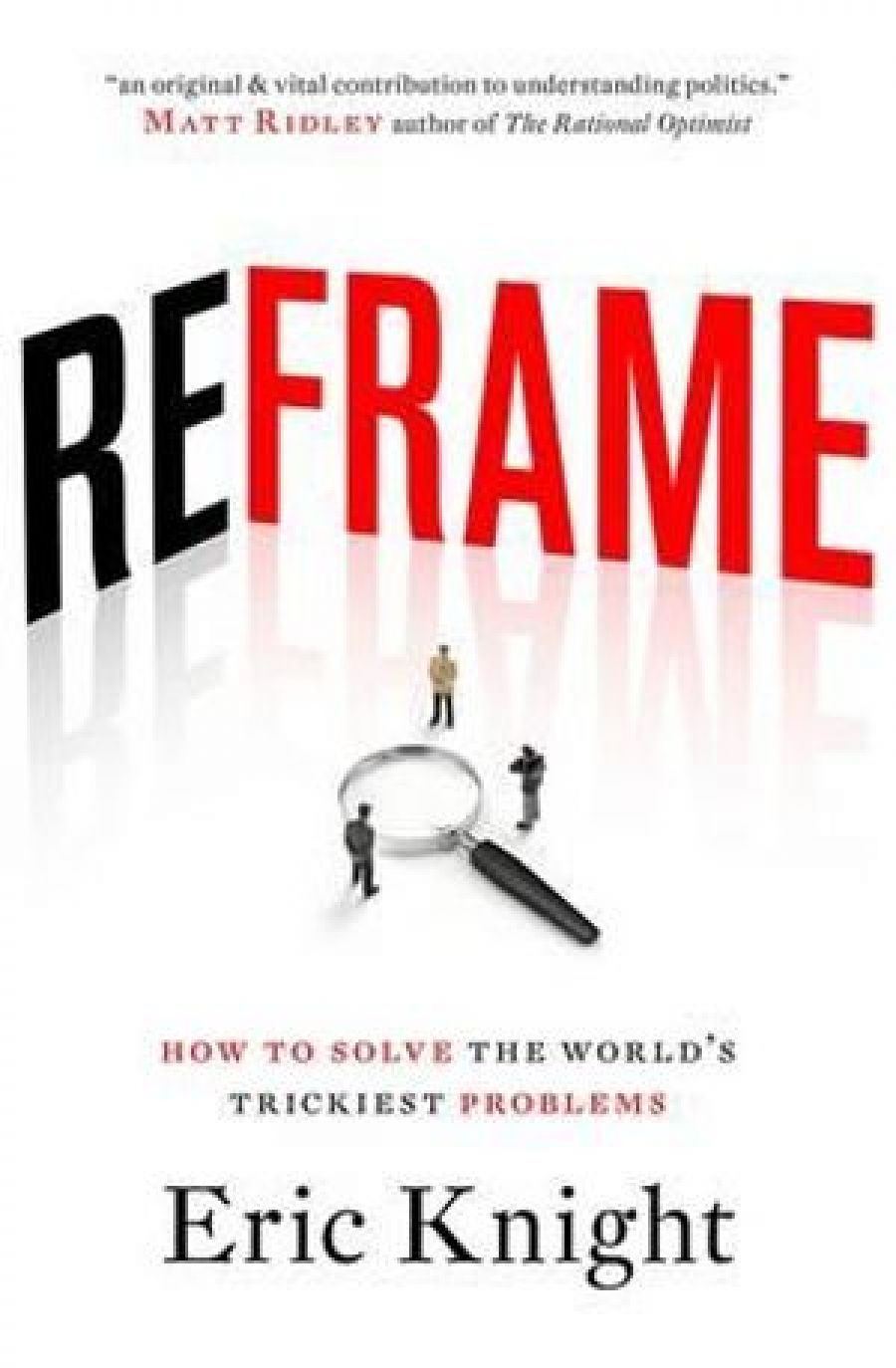
- Free Article: No
- Contents Category: Economics
- Review Article: Yes
- Online Only: No
- Custom Highlight Text:
Weary of the standard Hollywood pap, Samuel Goldwyn reportedly told his writers, ‘Let’s have some new clichés.’ In Reframe: How to Solve the World’s Trickiest Problems, his first book, Eric Knight sets about recasting corporate culture’s platitude to ‘think outside the box’.
- Book 1 Title: Reframe: How to Solve the World’s Trickiest Problems
- Book 1 Biblio: Black Inc., $29.95 pb, 228 pp, 9781863955591
In Reframe the ‘box’ is exchanged for what Knight terms ‘the magnifying glass trap’: an impulse by politicians and economists to amplify a problem by looking at its immediate effects, thus missing important nuances at its periphery. Swiftly dealing with a farrago of contemporary issues – ranging from the recent ferment on Wall Street to the insurgencies in Iraq and Afghanistan – Knight insists that ‘we need to readjust how we interpret the world around us’. For the former, this means that traders ought to have looked to long-term trends in the market, rather than at their most recent profits. As for the latter, Knight suggests that Coalition forces should have recognised the importance of local communities and their stability, rather than simply killing terrorists. ‘One of the take-away messages for the United States from Vietnam,’ he stipulates, however, ‘was not to reframe the nature of difficult conflicts but to avoid them.’ (If only someone had expressed this sentiment at the time.)
Readers of Malcolm Gladwell and the popular Freakonomics books will be familiar with Reframe’s leitmotif: a précis of an entrepreneur’s failures to ‘solve’ a complex issue, followed by a moment of insight (‘What he discovered was astonishing’), in which he is impelled to break away from popular convention and introduce to the free market a product that is not only more efficient, but also unprecedented.
It is not that problems do not require a different approach: they often do. Where Knight’s ‘book about vision’ errs is in its perception that a new perspective is itself a stratagem or a solution.


Comments powered by CComment